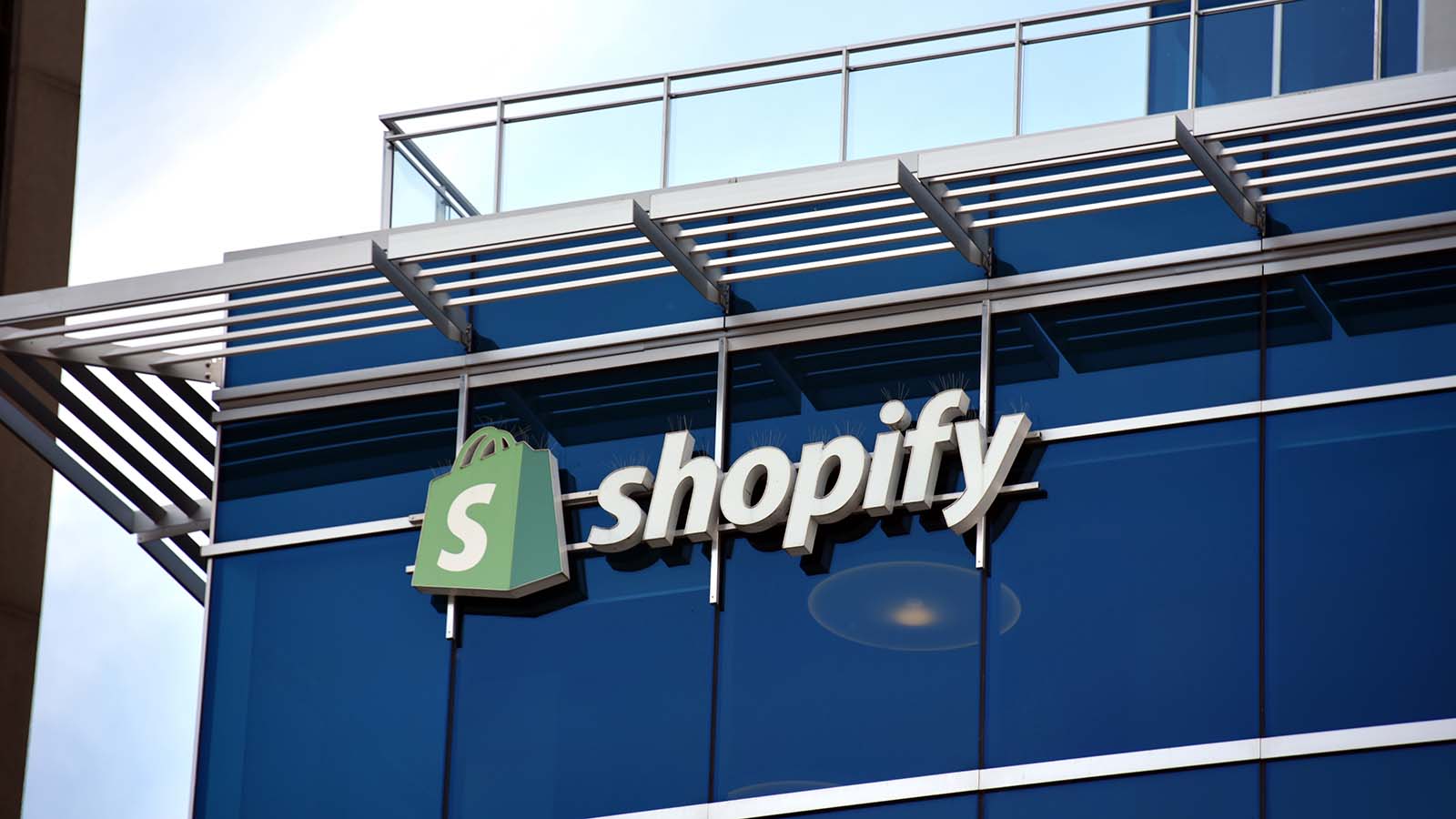Back in August 2021, I wrote that Shopify (NYSE:SHOP) was overvalued by any reasonable metric. At the time, SHOP stock was trading at $1,525 per share, but later it climbed to a peak close of around $1,690 on Nov. 19. Now, the stock is changing hands around the $655 mark. However, I think it’s still probably overvalued, even though it’s way down.

My reason why? It has to do with the e-commerce company’s recent earnings release on Feb. 16. For the period, the Canada-based company reported solid revenue, gross merchandise value (GMV) and subscription growth on a year-over-year (YoY) basis. But there are other items to consider.
Here’s what you should know about SHOP stock moving forward.
SHOP Stock: Lower Revenue Guidance
Really, the problem with SHOP stock has to do with the company’s recent guidance. Shopify said there are “secular tailwinds” for entrepreneurs going forward, but inflation and consumer spending near-term will cause problems for its growth rates. The company expects “revenue growth for the full year 2022 that is lower than the 57% revenue growth achieved in 2021.”
However, the most important effect on Shopify’s revenue will come from huge changes to its “rev share” program, where it participates in entrepreneurs’ revenue. Here is how one site, baremetrics, described the changes:
“Since August 1st, 2021, Shopify has eliminated its revenue share on the first 1,000,000 USD of revenue earned by Shopify Partners. But that’s not all — after a company reaches their first million, Shopify has also changed its revenue share on additional revenue generated calendar year […] dropping from 20% to 15%!”
There’s more. Shopify also shifted from “gross to net revenue recognition for the sale of themes as a result of revised contract terms.” Shopify themes are the set of HTML, CSS, JavaScript, Liquid and image files that control the look and feel (or “front-end”) of an online Shopify store.
By switching to net revenue, the company’s top-line revenue will be lower. But, as The Motley Fool points out, this only changes “the appearance of lower top-line results.” It really changes nothing since, in the end, chargebacks are washed out in the bottom line.
Where This Leaves Shopify
That said, analysts still seem to have reasonably high expectations for SHOP stock both this year and next. The only change is that the market is valuing its growth expectations much lower.
For example, 41 analysts surveyed by Seeking Alpha show that their average revenue forecast for 2022 is $6.08 billion, compared to $4.61 billion in the year ending December 2021. That still represents growth of 32% this year. Granted, this is lower than the 57% growth last year, but it’s still a very high growth rate.
Moreover, these same analysts also forecast that 2023 revenue will reach $8.08 billion. That is 75% higher than the 2021 revenue of $4.61 billion. This implies a two-year compound annual growth rate (CAGR) of 32.4%, or about one-third each of the next two years.
Revaluing SHOP
Still, the issue is that, despite these huge growth rates, the market is no longer willing to grant it a very high valuation. The truth is that at its present $82 billion market capitalization, SHOP stock still trades at a high 13.61 times 2022 forecast revenue.
This is normally the kind of multiple reserved for earnings at most other companies, including retailers.
Here is a very simple example. Amazon (NASDAQ:AMZN) trades for about 3 times forecast 2022 revenue, according to Seeking Alpha. Now, granted Amazon’s revenue is forecast to grow just 15% over its 2021 level by analysts.
If we doubled the multiple since Shopify’s 33% growth rate is 2.2 times Amazon’s, the price-sales (P/S) ratio should be no more than 6.6. Let’s call it 7 times revenue. That is still 49% lower than the 13.61 times P/S multiple Shopify has now.
In other words, SHOP stock should trade for no more than 7 times revenue. Even if we are liberal, we could call it 10 times revenue for simplicity’s sake. This implies that SHOP stock could fall nearly 27% more (i.e., 10/13.61 – 1 = -26.5%). That puts its target price below $480 per share.
What to Do with Shopify
I have shown that, even by being liberal, we can estimate that SHOP stock is likely to keep on falling as the market revalues its growth rate going forward.
Most analysts are likely to begin to lower their target prices after a more realistic comparison with Amazon. As a result, value investors will want to wait for the stock to come down back to earth before venturing into an investment.
On the date of publication, Mark R. Hake did not hold (either directly or indirectly) any positions in the securities mentioned in this article. The opinions expressed in this article are those of the writer, subject to the InvestorPlace.com Publishing Guidelines.
Mark Hake writes about personal finance on mrhake.medium.com and Newsbreak.com and runs the Total Yield Value Guide which you can review here.
